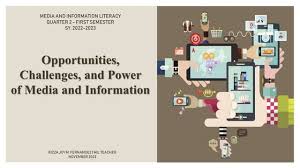
Q&A With A360Media Senior Editor Louisa Marshall
Although 2023 is a challenging time to be a young journalist, Louisa Marshall is proving that youth can be a superpower. Just a few years out of university, Marshall has already written for nationally recognized outlets including The Hollywood Reporter, NBC Los Angeles, and Static Media, where she also began her editing career. Now a Senior Editor at A360Media, Louisa leads a team of 17 staff members to generate creative content across digital, magazine, and social media channels.
5WH recently had the chance to ask Marshall about her unique perspective on the evolving media landscape. Here’s what she shared:
Q: Of the many changes taking place in the media industry, what recent shifts have had the biggest impact on your day-to-day?
A: Of all the changes to keep up with, I’d say as a senior editor who works primarily in digital that the updates made to Google and the ever-changing strategies tied to SEO have the biggest impact on my day-to-day. Just one Google update can completely change how our audience development works, how to approach SEO, and how best to guide my team accordingly. Some of these updates can also happen randomly or without our prior knowledge, so it certainly keeps our operations on our toes, ready to shift strategy at any moment.
Q: What components of managing a newsroom are more difficult than they used to be?
A: What I am most concerned about these days when managing a newsroom comes down to two components: the content and the workplace dynamic. When it comes to content, the media industry is now so saturated with outlets all trying to report on the same story. This provides a unique challenge as an editor because I’m always trying to push my team to think of unique angles to bring to the pressing topics so we can stand out from the crowd. Social media is also a beast that is far more difficult to contend with than it used to be. With all the updates to Meta, the demise of Twitter, the power of TikTok, etc, the skillset needed to approach social is ever-changing.
When it comes to the workplace dynamic, maintaining a productive and fast-moving news team while working fully remote is a hurdle that has been challenging to overcome. It certainly was not impossible to implement and maintain, but a digital and remote newsroom really needs to be honed in when it comes to communication.
Q: Have you embraced any digital tools in your newsroom in recent years? If so, which ones?
A: Yes - Twitter, TikTok, Pinterest, Facebook, Meta Suite.
Q: Have you considered utilizing or already started utilizing AI in your newsroom? If so, what has the process been like?
A: We are using AI in the form of True Anthem, which is a social media AI tool. It is fairly new to our newsroom, but so far the process has been really positive.
Q: Is there anything you’re particularly optimistic about for the future of digital reporting?
A: As systems become more and more digitized, I’m optimistic about access and the files that we will eventually be able to get out hands on. With a larger pool of content, however, comes more opportunity for misinformation or a lack of processing to occur — it is a double-edged sword that I am prepared to take on.
Q: What do you look for in potential new reporters to add to your team?
A: Prior reporting experience, ability to work in digital search engines, and willingness to track down information are all positive attributes I look for. But more than that, I look for enthusiasm and passion for the job when it comes to reporting. Being a reporter is such a personal investment — it can often involve giving out your personal contact information, and being available at all hours of the day for sourcing — so I really look for someone who is willing to dig into that kind of work and put their enthusiasm on the table. You can teach the skillset of a reporter no problem, but finding the person with the right attitude is crucial.
Q: What do you think the typical newsroom will look like 10 years from now?
A: I think that the future of the newsroom is really up in the air. When I think about the industry, print is — if it hasn’t already — going out the door. Millennials and Get Z’ers don’t go home and turn on the 5 p.m. news, so in many ways, I see the longevity of broadcast news getting shorter and shorter. I think the “newsroom” — in 10 years — will be wherever reporters, writers, and editors have access to a computer and a phone. If the COVID-19 pandemic proved anything, it’s that working from anywhere is a luxury that many people in the editorial world have. It would not shock me if our industry went fully remote within the next decade.
Q: What keeps you up at night as a newsroom leader in 2023?
A: Misinformation keeps me up, as does the blogging culture that has permeated online platforms. As a senior editor, I know intimately just how many resources and how much experience is on my team, allowing us to accurately source and track down information. But as more and more digital writers, bloggers, and content creators get their footing and grow their sphere of influence, I worry that incorrectly packaged news and stories will become even more prevalent than it already is.
Dedee Droege is an independent journalist based in Los Angeles, California.
.jpeg) Dedee Droege
Dedee Droege







